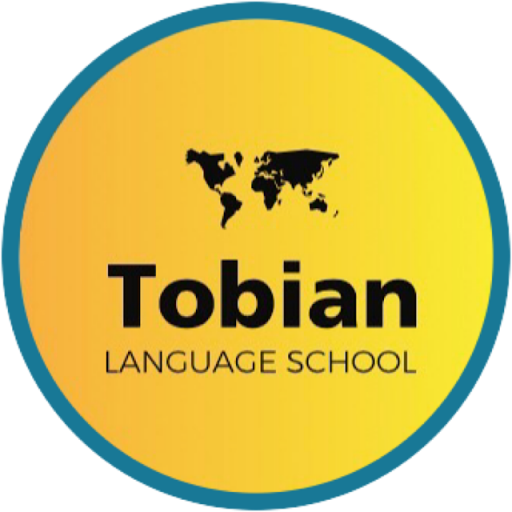Is Dutch Hard to Learn?
A Comprehensive Guide for English Speakers
- June 28, 2023
- By Tobias Woudt
The difficulty of learning Dutch can vary depending on your native language and your previous experience with learning foreign languages.
However, for most English speakers, Dutch is generally considered to be a moderately difficult language to learn.
So in short yes but, with the right tools and a little help from the Tobian Language School, together, we can make Dutch Easy to learn.

Table of Contents
A Brief History of the Dutch Language
Dutch is part of the Germanic language family, like English, so there are some similarities between the two languages.
This can make certain aspects of learning Dutch easier, such as vocabulary that has been adopted from French or Latin, and some grammatical structures.
Additionally, Dutch uses the Latin alphabet, which is familiar to many English speakers.

What Makes Dutch Hard to Learn

There are several challenges to consider when asking if Dutch is hard to learn?
Dutch has a unique sound system, including vowel sounds and guttural consonants, which may be unfamiliar to English speakers.
The grammar can be complex, with various verb forms and word order rules. Additionally, Dutch has some irregularities and exceptions that can take time to master.
Nevertheless, with dedication, practice, and exposure to the language through immersion or language learning resources, it is definitely possible to learn Dutch. Many resources, such as textbooks, online courses, language exchange platforms, and language schools, are available to support your learning journey. The key is to be patient, consistent, and motivated in your language learning efforts.
For English speakers, Dutch is considered to be a moderately difficult language to learn.
Here are some factors that can influence the difficulty level:
Vocabulary
English and Dutch share some vocabulary due to their common Germanic roots.
This means that English speakers may encounter familiar words or cognates, making vocabulary acquisition somewhat easier.
Pronunciation
Dutch pronunciation can pose a challenge for English speakers.
Dutch has unique vowel sounds and guttural consonants that may be unfamiliar, requiring practice to reproduce accurately.
However, compared to languages with vastly different phonetic systems, the pronunciation gap between English and Dutch is relatively manageable.
Grammar
Dutch grammar can be more complex than English grammar in certain aspects.
Dutch has gendered nouns, verb conjugations based on subject pronouns, and different word order rules.
These grammatical structures may require English speakers to adjust their thinking and learn new patterns.
Here’s a couple of examples:
In dutch both male and female words start with the article ‘de‘.
“de koeien lopen naar de wei” – “the cows walk to the pasture”
koeien – cows = feminine
“de hond blaft tegen zijn baasje” – “the dog barks at its owner”
de hond = masculine in this situation
There is also another article type in Dutch which is genderless or can be called neutral: “het“
“Het paard galoppeerde vrolijk over de uitgestrekte weide“
The horse galloped merrily across the vast meadow
Spelling and Pronunciation Correspondence
While Dutch has consistent spelling rules, the correspondence between spelling and pronunciation can be more straightforward in English. Dutch orthography can sometimes present challenges, with certain letters and combinations producing unexpected sounds.
Cultural Context
Learning any language involves understanding cultural context, idiomatic expressions, and social conventions. English speakers may need to familiarize themselves with Dutch culture, customs, and societal norms to fully grasp the language’s nuances.
What Makes Dutch Easy to Learn
Dutch, with its shared Germanic roots and abundance of resources, is considered relatively easy for English speakers to learn.
Lets explore the various factors that make Dutch an accessible language, including shared linguistic features, availability of resources, vocabulary similarities, pronunciation patterns, and the presence of false friends.
So, let’s dive in!
Shared Germanic Roots
One of the primary reasons Dutch is relatively easy for English speakers to learn is its shared Germanic roots.
Both English and Dutch belong to the West Germanic language family, which means they share similarities in terms of grammar, vocabulary, and sentence structure.
English speakers will notice familiar linguistic patterns, making it easier to grasp Dutch concepts. For example:
English: “I am happy.“
Dutch: “Ik ben blij.“
Availability of Resources
Learning a new language becomes more accessible when you have access to a wide range of resources.
Fortunately, Dutch learners benefit from an abundance of learning materials, including textbooks, online courses, podcasts, language exchange platforms, and dedicated language schools.
Some notable resources include:
Tobian Language School: Dedicated 1-1 Tuition
Memrise: Provides flashcards and gamified lessons for Dutch learners.
Italki: An online language platform connecting learners with native Dutch speakers for language practice.
Vocabulary
English and Dutch share numerous similarities in vocabulary, thanks to their shared Germanic heritage.
Many words have similar meanings, spellings, or pronunciations, which aids in the learning process.
Here are some examples of cognates (words that sound or look alike):
English: “animal“
Dutch: “dier“
However, it is important to note that while many words are similar, there are also some false friends (discussed later in this article) and differences in vocabulary that require attention during the learning journey.
Pronunciation
Dutch pronunciation is generally considered easier for English speakers compared to other foreign languages.
Although Dutch has its unique sounds, and a bad reputation, it lacks some of the more challenging aspects found in languages like French or Mandarin.
Additionally, the Dutch language follows consistent pronunciation rules, making it easier to learn once you become familiar with the sounds. Some common Dutch sounds include:
“ui” as in “huis” (house)
“g” as in “gracht” (canal)
With regular practice and exposure to spoken Dutch through resources like audio courses or language exchange partners, mastering the Dutch pronunciation is an achievable goal.
False friends
One aspect that English speakers need to be mindful of when learning Dutch is the presence of false friends.
False friends are words that look or sound similar in two languages but have different meanings. Recognizing and understanding false friends is crucial to avoid misunderstandings.
Here are a few examples:
English: “eventually” (in the end)
Dutch: “eventueel” (possibly)
By being aware of false friends and actively learning their correct meanings, English speakers can navigate this linguistic challenge and prevent confusion during conversations.
Recap
While learning any new language requires dedication and effort, English speakers have several advantages when it comes to learning Dutch.
The shared Germanic roots, availability of resources, similar vocabulary, manageable pronunciation, and awareness of false friends collectively contribute to making Dutch a relatively easy language to learn.
So, if you’re considering learning a new language, Dutch is undoubtedly an excellent choice to explore.
Embrace the journey, and you’ll find yourself making significant progress in no time!

The Benefits of Learning Dutch. Discover the Advantages
Enhanced Communication
Unlock a world of communication possibilities by learning Dutch, a language spoken by approximately 24 million people worldwide.
Gain the ability to engage with native speakers not only in the Netherlands, but also in Belgium (Flanders), Suriname, and Dutch-speaking communities across the globe.
Embrace the chance to forge personal and professional connections, opening doors to exciting opportunities.
Cognitive Advantages
Embarking on the journey of learning Dutch offers more than just language skills; it provides cognitive benefits as well.
Boost your memory, problem-solving abilities, and overall brain function through the acquisition of a new language.
Additionally, enhance your multitasking skills and ignite your creativity along the way.y.
Personal Growth
Mastering Dutch, or any new language, is a remarkable personal achievement that fuels personal growth.
Embrace the challenge of acquiring a new skill, broaden your perspective, and cultivate your character.
Forge meaningful friendships and social connections with native Dutch speakers, expanding your horizons and enriching your life.
Linguistic Connections
As mentioned previously, Dutch belongs to the West Germanic language family, sharing similarities with English and German.
If you already speak either of these languages, learning Dutch becomes even more accessible due to shared vocabulary and grammatical structures.
And, by exploring Dutch, it can serve as a gateway to mastering other languages within the same language sphere.
Integration
For expats planning to settle and work in the Netherlands long-term, learning Dutch is essential.
Seamlessly integrate into the local community, foster connections with neighbors, and build strong relationships with Dutch colleagues and friends.
By speaking the local language, you demonstrate your commitment to the country and its culture, creating a sense of belonging.
You can find out more about working as an expat in the Netherlands here.
You can also read about the famous Dutch Inburgering Exam here.
Enriched Cultural Understanding
Immerse yourself in Dutch culture on a profound level by learning the language.
Experience the joy of delving into local literature, music, theater, and media without relying solely on translations.
Engage in festivals, grasp Dutch humor, and partake in cultural discussions, deepening your overall expat experience.
The Netherlands offers a centralized system for all theaters, ensuring extraordinary live shows.
Family and Education
If you relocate to the Netherlands with your family, learning Dutch becomes even more invaluable.
It facilitates your children’s integration into the local education system, aiding them in making friends and adapting to their new environment.
Additionally, effective communication with teachers becomes possible, allowing you to actively engage in your children’s education.

How Long Does It Take To Learn?
The time it takes to learn Dutch varies depending on several factors, including:
- Your prior language learning experience,
- Your dedication to studying and practicing,
- The intensity of your language learning efforts,
- The amount of time you can allocate to language learning each day or week.
Additionally, your proficiency goals (basic conversational skills versus fluency) will also affect the duration of the learning process.
With consistent effort and effective learning strategies, it is possible to achieve basic conversational skills in Dutch within several months of focused study. This typically involves learning essential vocabulary, basic grammar structures, and practicing listening and speaking skills.
Remember that language learning is a continuous process, and it’s important to maintain regular practice and exposure to the language even after reaching a certain level of proficiency.
Consistency, motivation, and exposure to authentic Dutch materials (such as books, movies, and conversations with native speakers) can greatly accelerate your progress in learning Dutch.
In addition, Dutch lessons are an important component regarding learning Dutch. The number of private lessons needed to learn Dutch can vary greatly depending on individual factors, including your learning style, language learning aptitude, time availability, and the intensity of the lessons. It’s challenging to provide an exact number as it depends on various variables.
From our own experience at the Tobian Language School, many language learners find that around 80- 100 hours of instruction can provide a solid foundation in Dutch. This estimate includes both classroom instruction and self-study time. Private lessons typically offer focused and personalized instruction, which can be beneficial in accelerating your learning progress.
You can find out more about how long it takes to learn Dutch by clicking here.

How To Start Learning Dutch?
In our article How to learn Dutch we explained several key strategies to learn Dutch.
In short, we present 8 key strategies that include:
- Total language immersion,
- Practising routinely,
- Visiting a Dutch speaking country,
- Patience
Read our article to view the complete guide on how you can start learning Dutch today,

Conclusion
To conclude, while learning Dutch can present its challenges, it is possible to learn the language relatively quickly with the right approach and dedication.
By employing effective learning strategies, consistent practice, and immersing oneself in the language, learners can make significant progress in a relatively short period.
With motivation and perseverance, the goal of learning Dutch can be achieved at a faster pace than initially expected.
Join now the Tobian Language School and find out the answer to your question: is Dutch hard to learn?

Tobias is a polyglot, traveller and founder of the Tobian Language School.
